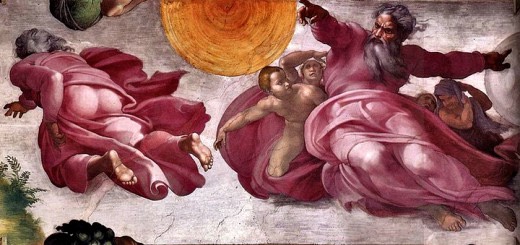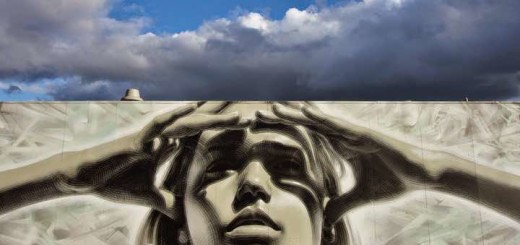“As the Father has sent me, so I send you” (Jn 20, 19-23)
Report* by Mariella Colosimo of the biblical reflection meeting of WORD… AND WORDS group** in Rome on 7 April 2020
John 20:19-23 it is a generalized call to love and mercy, which concerns the entire community, John's passage seems to express: a message of hope, a word of encouragement to free us from the fear that envelops us all, especially in this period, a push to embark on a path of relationships of authentic mutual forgiveness, which go beyond prejudices.
“Peace be with you”: these are the words with which Jesus addresses the disciples who were hiding in fear. And while he pronounces them he shows the signs of the violence of the cross on his hands and side, as if to underline that it is the Crucifix who pronounces them. What Jesus speaks of is not a fake peace, which spreads out like a carpet, covering and hiding injustices, violence, oppression. The signs he shows on his body as he pronounces them tell us that his gift is a peace that he must deal with those wounds.
So Jesus shows her his wounds. Is it an invitation to do so to those who are afraid to show their own history and wounds? And do you feel more protected by hiding them? This question questions us.
And there are those who identify with the disciples, who express joy in seeing the Lord again, and feel indebted to them for having passed on their extraordinary experience, overcoming fears and fragility, and putting their lives at risk to follow the invitation of Jesus: “As the Father has sent me, so I send you“. It is a task that Jesus left to them, and to all of us, as an inheritance: he sends us to follow the paths of mercy, which he followed in response to the Father's call. And he refers this invitation to what each of us has given to our children and to others, to what we leave as a legacy: what is it that we have sown?
Then his breath on them so that they receive the Holy Spirit. No longer his physical presence, his touching, his healing, but another presence, perhaps more intimate, which penetrates our existence. A life-giving presence, which can change our lives and our mentality, saving us profoundly and forgiving our sins. Who will dwell in our hearts and guide them. A direct relationship with God, without intermediaries.
And we come across the last words of John's passage: “Whose sins you forgive, they will be forgiven, and whose sins you do not forgive, they will remain unforgiven”, and with those of Matthew (18:18): “Whatever you bind on earth will be bound in heaven, and whatever you loose on earth will be loosed in heaven.” Untie, bind. And that word, "bind", it scares us. The anguish and anger resurface in one of us for that absolution denied for having spoken of his cohabitation with a woman.
Is Jesus giving the disciples the power to forgive and not forgive sins? To a small group or to the whole church, whose initial nucleus was gathered there? And is it a power, or something else? Are those words from Jesus, or are they the result of a subsequent reworking of the first Christian communities?
In his life Jesus always loosened, never bound. He untied the ties that bound those who bore the mark of impurity in the society of his time, and who were oppressed and crushed by that mark: the paralytics, the blind, the sinners, the Samaritans... redeeming them in the eyes of others : “The tax collectors and prostitutes will precede you into the kingdom of heaven!”. The churches born from him most often tied. Many have ended up in those snares: snares that hurt, suffocate, hurt. We feel that suffering weighing heavily on our meeting.
What's the point, someone in the group asks, in staying in a house where you don't feel welcome, where you often feel excluded and judged? Isn't it better to leave such an inhospitable home? And there are those who respond with other questions: “There are many of us in this house, the hierarchy and all of us. Why decide whether or not to leave it only on the basis of what the hierarchy says or does? Thus giving her the keys to open and close exclusively? And do we, with our efforts to welcome each other, sharing our stories, count for nothing? Why lose hope that it is possible to walk together, all the inhabitants of the house, and infect each other to build a church for all, which draws its strength not from power, but from the message of Jesus, and places the announcement of the good news to the oppressed?”.
Of course, the legacies of the past will die hard, just as the path to be taken to be able to live an authentic faith, freed from those ancient legacies, from those conditionings that still remain deep inside, will be hard and long.
There are those who search the Scriptures for more reassuring words, and find them in the first letter to the Corinthians: “Let each one therefore examine himself, and then eat of this bread and drink of this cup.”, which refer to an examination of ourselves and a direct relationship with God.
But that question comes back: why would Jesus, who spent his life to loosen, free, give mercy to sinners even before they repented, without placing their conversion as a pre-condition, leave the power to bind to someone? It can't be like this. It is the life of Jesus that tells us this. Or is that text talking about mutual forgiveness, and we have been misled by an interpretation that has caused us suffering?
Those wounds on the hands and side of Jesus remain to question us. The Crucifix has risen, but the body of the Risen One still bears the wounds of the cross, as if wanting to remain hostage to all those crucified. Only when we heal their wounds, perhaps those on the body of the Risen One will also heal.
John 20:19-23
In the evening of that same day, the first after the Sabbath, while the doors of the place where the disciples were located were closed for fear of the Jews, Jesus came, stopped among them and said: "Peace be with you!". Having said this, he showed them his hands and his side. And the disciples rejoiced when they saw the Lord. Jesus said to them again: «Peace be with you! As the Father has sent me, I also send you." After saying this, he breathed on them and said: «Receive the Holy Spirit; whose sins you forgive will be forgiven, and whose sins you will not forgive, they will remain unforgiven."
*The return is a sort of report of what was said during the meeting. As in a collage, significant fragments of the interventions of the individual participants are put together, words and thoughts expressed by each and every one.
** PAROLA… E PAROLE is a Christian experiential meeting group for parents of LGBT people and LGBT parents in Rome. We meet to travel and trace together the path towards an inclusive society and church, where no one is marginalized. We do this by following in the footsteps of that Jesus of Nazareth, who, on the streets of Palestine, shared his life with the excluded men and women of his time. We meet once a month, normally on the first Friday, at 8pm in a room adjacent to the church of Sant'Ignazio. Those who are interested can contact us at these numbers: Alessandra Bialetti 346 221 4143 – alessandra.bialetti@gmail.com; Dea Santonico 338 629 8894 – dea.santonico@gmail.com






